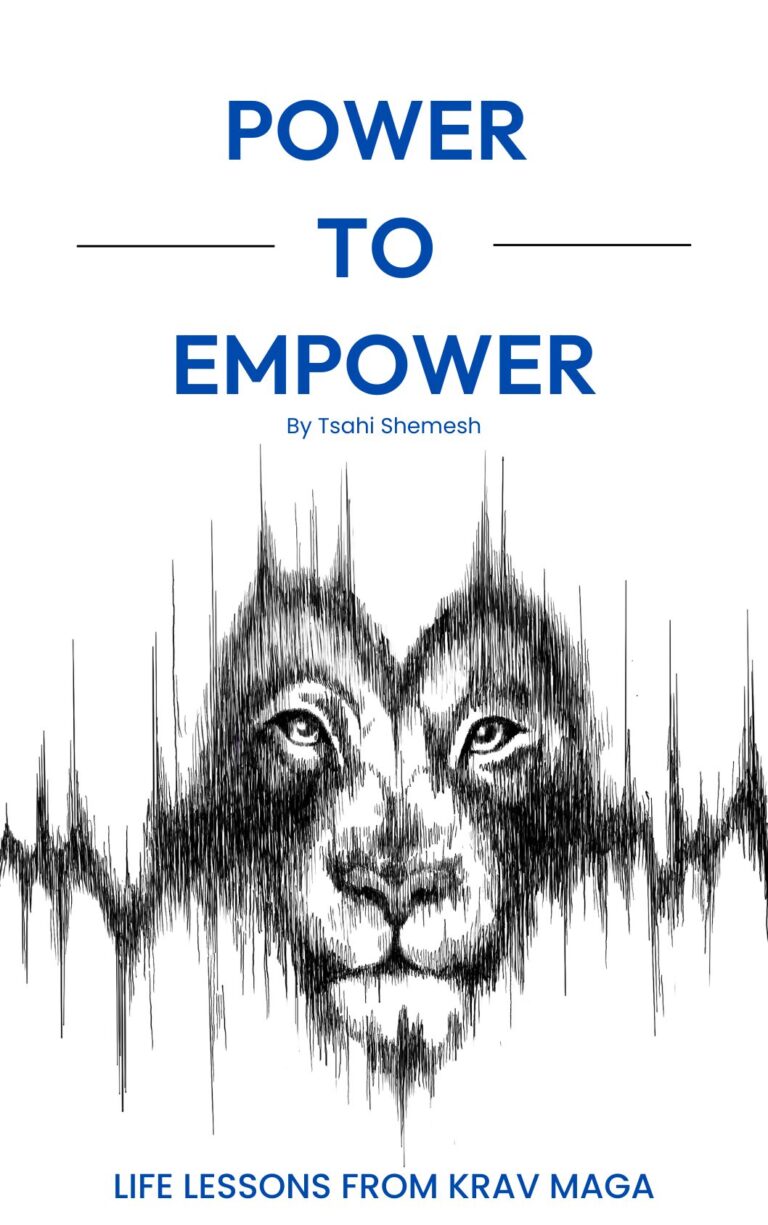Perfectionism vs Progress:
How Embracing Imperfection Leads to True Growth
I often witness people expressing frustration during training when they don’t execute drills as well as they’d hoped. While this reaction is understandable, it always makes me question whether the expectation of perfection is truly relevant—and, more importantly, whether it helps or hinders progress.
Take my own experience, for example. When I watched the recording of my black belt test for the first time, my initial reaction wasn’t pride or relief at having passed—it was dissatisfaction. Despite achieving my goal, I was fixated on what I saw as the lack of quality in my technique. Over time, especially now that some of my self-defense training videos have gone viral, I’ve had to confront this mindset. I’ve come to accept that perfection isn’t the goal—it’s a myth. The real goal is progression. I’ve realized I have plenty of room to grow, and that doesn’t scare me; it excites me. The truth is, getting the job done, even imperfectly, is far more valuable than waiting for some elusive ideal. “Better done than perfect” has become a mantra that has reshaped my approach to both training and life.
This internal struggle between wanting to meet high standards and accepting the reality of imperfection is something many of us face. Over the years, I’ve come to realize that this thought process—how we handle our own expectations—deserves attention. Understanding how to navigate these expectations is key, not just for personal growth but for cultivating resilience. It’s a journey worth sharing, especially when we explore the concept of perfectionism and why it can often do more harm than good.
Perfectionism can be one of the greatest barriers to progress. In my journey as both a teacher and a student, I’ve learned that striving for excellence is not the same as being trapped in the pursuit of perfection. The idea that we can attain a flawless outcome, whether in our personal growth, our practice, or our relationships, is a myth that often holds us back rather than pushes us forward.
In Krav Maga, self-defense, and life itself, the focus isn’t on being perfect but on constantly striving to improve. Perfectionism creates a false ideal, overlooking the importance of failure and the valuable lessons it offers. As I often say, “Failure is not the opposite of success; it’s part of the path to success.” This isn’t just a cliché—it’s a fundamental truth that shapes our ability to grow stronger.
Imagine the scenario on the mat during a class. A student is repeatedly trying to nail down a technique but keeps stumbling over the same mistakes. They may feel frustrated, embarrassed, or think they are not good enough. Perfectionism whispers in their ear, telling them that unless they get it perfectly right, they’ve failed. But in truth, the greatest progress happens not in the moments when everything goes smoothly but when we grapple with what doesn’t work.
In the practice of Krav Maga, we don’t train to become perfect. We train to become adaptable, resilient, and ready for any situation. Real life doesn’t present us with perfect conditions. We fight not just physical opponents but internal battles with doubt, fear, and the unrealistic expectations we place on ourselves. Perfectionism amplifies these internal battles, turning the natural learning process into a cycle of self-doubt.
Perfectionism is the pursuit of flawlessness in everything we do, often driven by a need to avoid mistakes, a fear of failure, or a desire for external recognition and approval. While striving for excellence can lead to constant improvement and high achievement, perfectionism becomes burdensome when the standards set are unattainable or when there’s a persistent feeling that nothing is ever good enough.
The problem with perfectionism is that it often leads to ongoing disappointment, frustration, and stress because it creates unrealistic expectations. Reaching absolute perfection in any field is extremely difficult, if not impossible. As a result, people with perfectionist tendencies may find themselves trapped in a cycle of self-criticism, procrastination, or avoiding tasks altogether out of fear of not meeting a flawless standard.
I’ve worn many hats in life—teacher, student, soldier, protector—but not once have I sought perfection in any of these roles. What I’ve sought is mastery through effort, through trial and error, through the willingness to fail, get up, and try again. This mindset is key to growth in any discipline, be it martial arts or personal development. Every mistake is an opportunity, a chance to reflect, adjust, and come back stronger.
Perfectionism also paralyzes us from taking action. How many times have we delayed starting something, whether it’s a new venture, a new skill, or even a conversation because we wanted to do it just right? It’s a mindset that convinces us that there is a ‘perfect’ time, a ‘perfect’ plan, or a ‘perfect’ moment. In reality, waiting for that perfection often means we never begin at all.
True growth doesn’t come from getting everything right but from the ability to keep moving forward despite uncertainty and imperfections. In Krav Maga, we are taught to move, strike, and adapt. The flow of combat is rarely clean, and the best fighters aren’t the ones who strive for flawless performance but those who stay grounded, recover quickly, and turn every misstep into fuel for progress. As the saying goes, “You either win, or you learn,” and it’s this mindset that shapes real resilience and mastery. True fighters understand that each mistake is an opportunity for growth, not a failure.
Perfectionism can be dangerous because it creates an illusion of success as something final and static. But success is not a destination; it is a moving target. Just like in martial arts, where we continue to refine our skills, there is always more to learn and room to grow. If we become obsessed with achieving a fixed idea of perfection, we lose sight of the ongoing nature of mastery.
If you’re able to do something perfectly, it likely means you haven’t pushed yourself hard enough. Striving for perfection, in my view, is unhealthy because it’s based on an illusion—an ever-shifting point of view rather than a tangible reality. It is subjective, not a standard. Looking back at my own experiences, there have been countless times when I thought I had reached the peak of my ability, only to reflect a year later with humility, asking myself, “How was I ever satisfied with that level of performance?” Growth requires us to embrace the discomfort of imperfection, recognizing that what we accept today as our best will likely pale in comparison to what we can achieve tomorrow.
In my classes, I emphasize to my students the importance of effort over immediate results. It’s about showing up, putting in the work, and accepting that mistakes are part of the process. Real confidence is built not from the fleeting satisfaction of a perfect moment but from the consistent practice of pushing through challenges and improving a little every day. The goal is a consistent effort compounded over time. A 1% improvement each day may seem minor at the moment, but after 365 days, that incremental growth results in a staggering 3,678% improvement.
(Here’s the acquisition – (1+0.01)365−1=3678 should you want to do the math yourself.)
At the core of it all, perfectionism is a distraction. It pulls us away from the present, away from the journey, and keeps us fixated on an unreachable goal. We don’t need it to be powerful; we need progress. We need to commit ourselves to lifelong learning, to the pursuit of mastery, and to embracing the failures along the way as steppingstones, not as roadblocks.
Perfectionism might give us the illusion of control, but true power lies in our ability to accept imperfection and use it to fuel our learning. In Krav Maga and in life, we do not wait for perfect moments—we create them by being present, by being ready, and by moving forward, regardless of the obstacles in our path.
So, let go of the myth of perfectionism and instead focus on what truly matters: resilience, adaptability, and the relentless pursuit of becoming better—not perfect.
Do something amazing,
Tsahi Shemesh
Founder & SEO
Krav Maga Experts


4 Responses
Great article !
Thanks for the reminder! I am still working to overcome this desire to perfect every technique. Mostly because I fear injury from bad form and habits of improper movements. It’s difficult to find that balance between improving form/technique and over focusing on perfection.
As my dance mentor/friend, Jacques D’Amboise would say, “I’m not a perfectionist. I’m just concerned with excellence.” Keep striving. Never be satisfied. Willingness to try, learning and improving. I just have to take your advice and stop being so hard on myself.